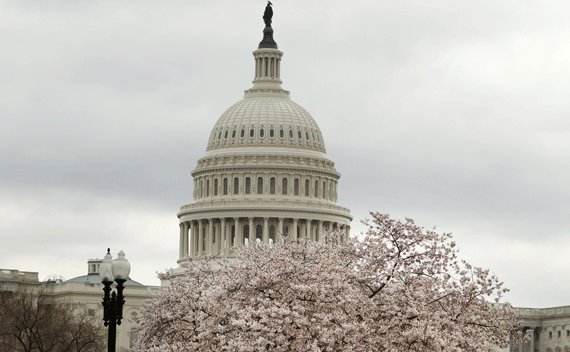Congress Barking, Not Biting, on War Powers
More on:

Debate over Libya and the War Powers Resolution heated up over the weekend. The New York Times reported on Saturday that President Obama overruled the top lawyers in the Justice and Defense departments over whether the War Powers Resolution applies to the Libya operation. President Obama was, of course, within his rights to reject their advice. But the political optics of ignoring lawyers who usually get their way is always lousy. It was no surprise that Speaker Boehner’s spokesman responded to the New York Times story by arguing that the news "reinforces the need for the White House to answer the questions that Congress and the American people have about our involvement in Libya."
So you can expect to hear a lot of sound and fury in the coming weeks on Capitol Hill about Libya. Rep. Michael Turner (R-Ohio) has offered a resolution that would formally "disapprove" of the Libya operation. Rep. Joe Heck (R-Nev.) has drafted language to allow spending on the Libyan mission only in order to end it. Rep. Dennis Kucinich (D-Ohio) says he will introduce a resolution to cut off all military spending on Libya. Sen. Richard Durbin (D-Ill.), the number two Senate Democrat, and Sen. Benjamin Cardin (D-Md.) are sponsoring a bill that would support the Libya operation but set an end date of December 30 and bar sending U.S. ground troops.
Nothing significant will come of these legislative efforts. The most important War Powers news this weekend was probably the least reported. Senate Majority Leader Harry Reid said on PBS’s "News Hour" Friday night that President Obama does not need congressional approval to continue U.S. military operations in Libya. His support, coupled with support from other Senate heavyweights such as John Kerry, John McCain, and Lindsey Graham, guarantees that anti-Libya legislation is going to die at the Senate’s door even if it makes it out of the House.
In short, President Obama doesn’t have to worry that Congress will stop the Libyan intervention anytime soon—even if a flurry of legislative activity and the accompanying breathless news coverage makes it seem otherwise. Not all barking dogs bite.
More on:
 Online Store
Online Store